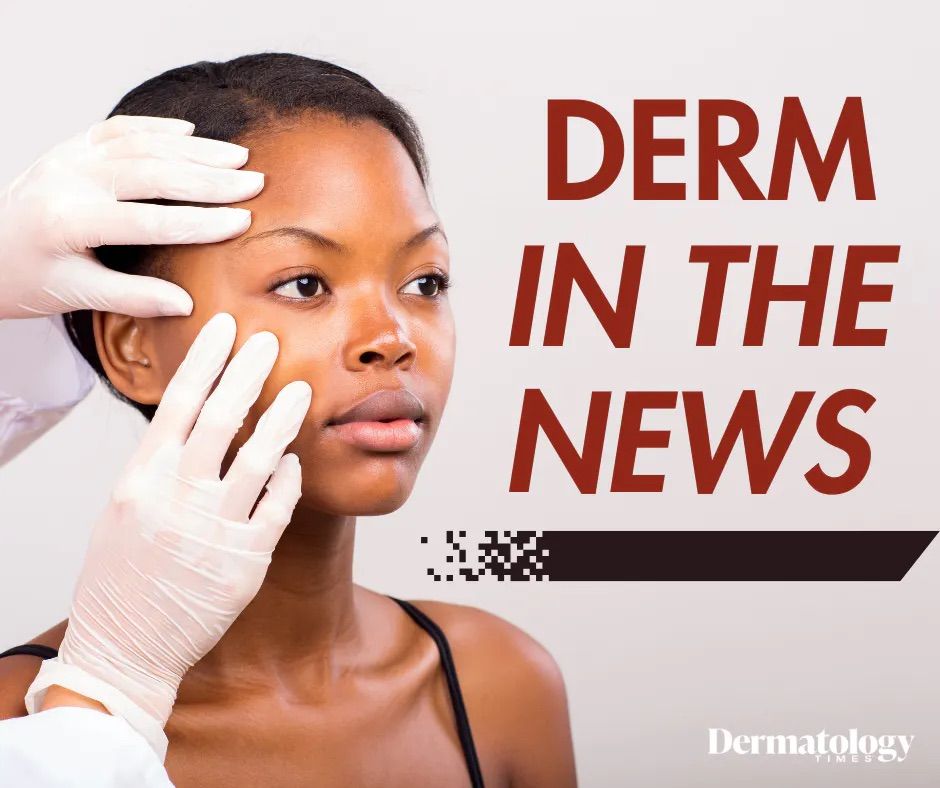Patient-Forward Rundown
Top headlines from this week to share with your patients:
News
Article
Author(s):
Keep up with the latest headlines in dermatology from the past week, including the appointment of All Detergent's first chief dermatology advisor, Incyte's acquisition of Escient Pharmaceuticals, and more.

Top headlines from this week to share with your patients:
Henkel's laundry detergent brand, All free clear, is teaming up with Lindsey Zubritsky, MD, FAAD, a board-certified dermatologist and social media influencer, to bridge the gap between laundry and skin care. Zubritsky will educate consumers on the importance of laundry in sensitive skin care routines through various platforms, including an appearance on The View and across her social media channels. Her role involves advising consumers on choosing the right detergent and developing updated laundry routines for sensitive skin.
Incyte is set to acquire Escient Pharmaceuticals and its assets, including 2 small molecule antagonists targeting Mas-related G protein-coupled receptor X2 (MRGPRX2) for mast cell-mediated disorders, at a value of $750 million plus Escient’s net cash. The transaction, expected to finalize in the third quarter of 2024, awaits regulatory approval. EP547, another oral MRGPRX4 antagonist, holds potential for treating severe pruritus conditions.
AbbVie announced that its drug Rinvoq has demonstrated superior effectiveness compared to Regeneron Pharmaceuticals and Sanofi's Dupixent in a late-stage head-to-head study for treating atopic dermatitis. The study revealed that after 16 weeks of treatment, Rinvoq helped 19.9% of patients achieve near-complete skin clearance with minimal itching, compared to 8.9% of patients treated with Dupixent. This marks the first head-to-head trial in adults and adolescents with moderate-to-severe atopic dermatitis who had an inadequate response to systemic therapy.
Read more from Dermatology Times here.
The University of Bristol is establishing a new Centre for Applied Excellence in Skin and Allergy Research (CAESAR) led by Professor Matthew Ridd, a GP and Professor of Primary Health Care. CAESAR aims to enhance the diagnosis and treatment of common skin and allergy issues in primary care settings. CAESAR, comprising a multidisciplinary team of 20 experts focusing on childhood eczema and food allergy, will spearhead the Transforming Outcomes for Paediatric Allergy in Primary Care (TOPIC) program. Over its initial 5 years, CAESAR will address research questions related to the effectiveness of treatments for childhood eczema, the impact of eczema clinics in primary care, priorities in childhood food allergy research, and awareness and adherence to early allergen introduction advice.
Abeona Therapeutics announced that the US Food and Drug Administration (FDA) has declined to approve its treatment for recessive dystrophic epidermolysis bullosa, causing its shares to plummet by 51% in after-market trading. The FDA issued a Complete Response Letter, requesting additional data related to chemistry, manufacturing, and controls before the treatment, known as pz-cel, can be approved. Abeona intends to provide the requested information by the third quarter. Despite the setback, the FDA did not identify deficiencies in the treatment's clinical efficacy or safety data and did not request new studies for approval.
Read more from Dermatology Times here.
New research led by dermatologists from the University of California San Diego has uncovered a direct connection between skin damage and disruptions in gut health in mice. While previous knowledge suggested that gut microbes influenced the skin, this study demonstrates that skin injuries can affect the composition of the gut microbiome and compromise intestinal defenses. The study involved inducing skin wounds and genetic alterations in mice to mimic skin damage without physical injury, leading to changes in the gut microbiome and exacerbation of digestive disorders like colitis. Fecal transplants from mice with altered gut microbiomes transferred susceptibility to colitis, indicating a link between skin damage and gut health.
Have you seen any dermatology headlines this week that we may have missed? Share with us by emailing our team at DTEditor@mmhgroup.com.